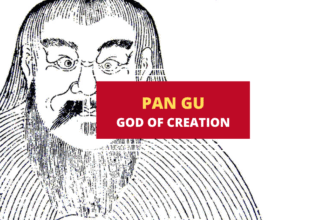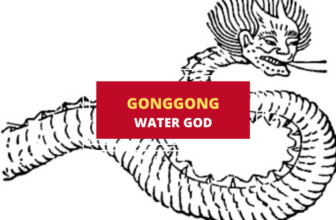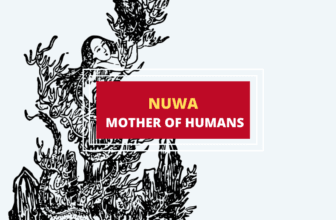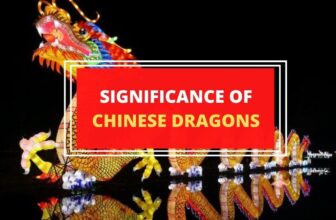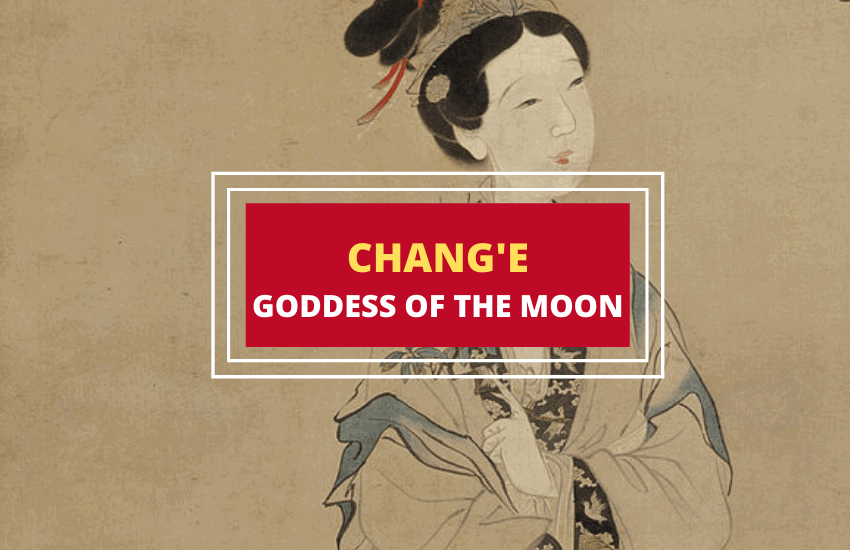
Table of Contents
The myth of the Chinese Moon Goddess Chang’e is one of sacrifice in the name of love. In other iterations of the story, it’s a tale of the betrayal of love, and in certain other versions, it’s a story of the escape from an unhappy relationship.
In other words, the myth of Chang’e changes depending on who you ask. But it is pretty fascinating in all its versions.
Who is Chang’e?
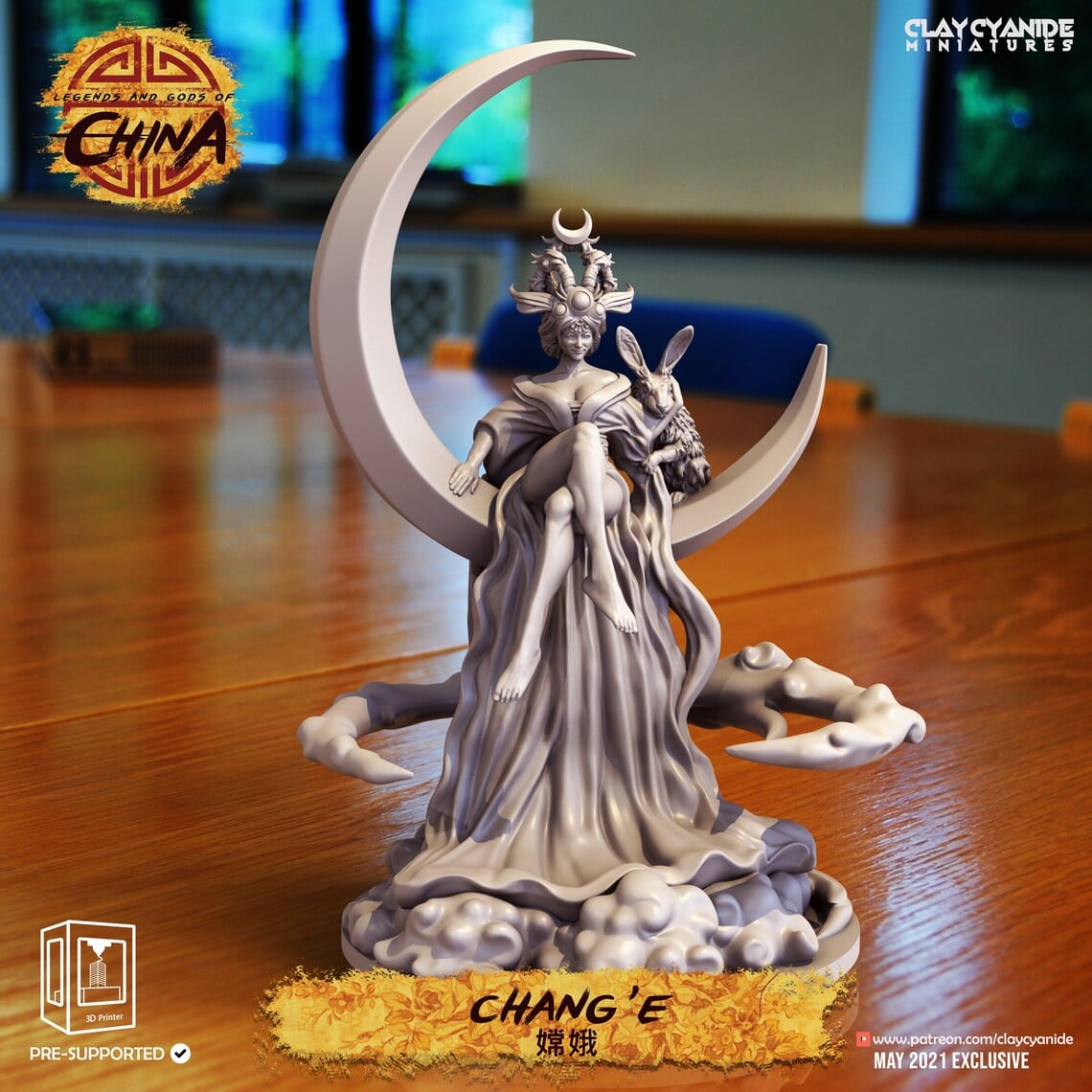
Chang’e’s name is as unique as it is simple. The first part – Chang – is completely unique to the goddess’ name and the é, in the end, means a pretty, young woman. So, Chang’e literally means Pretty, Young Chang.
This wasn’t always the character’s name. In the older versions of the myth, the goddess was called Heng’e. The etymology was much the same, as Heng was once again a unique personal name. However, once the Chinese emperor Liu Heng got to his throne, he decided that he couldn’t share a name with the goddess, as an emperor is supposed to have a unique name.
So, the goddess was renamed to Chang’e. Such is the power and self-importance of royalty that they are willing to rename the gods.
Nevertheless, Chang’e was and still is one of the most beloved deities in Chinese folklore. Her story is simple but romantic and captivating, so much so that the Mid-Autumn Festival is still celebrated every year in China in Chang’e’s name.
Note that Chang’e is not to be mistaken with Changxi – another famous but minor Chinese lunar goddess. The latter is The Mother of the Twelve Moons from a different myth. Some scholars do speculate that Chang’e may be the mother of Changxi due to their similarities but that’s unclear. Regardless, the two are definitely not the same person.
The Greatest Love Story In Chinese Folklore?
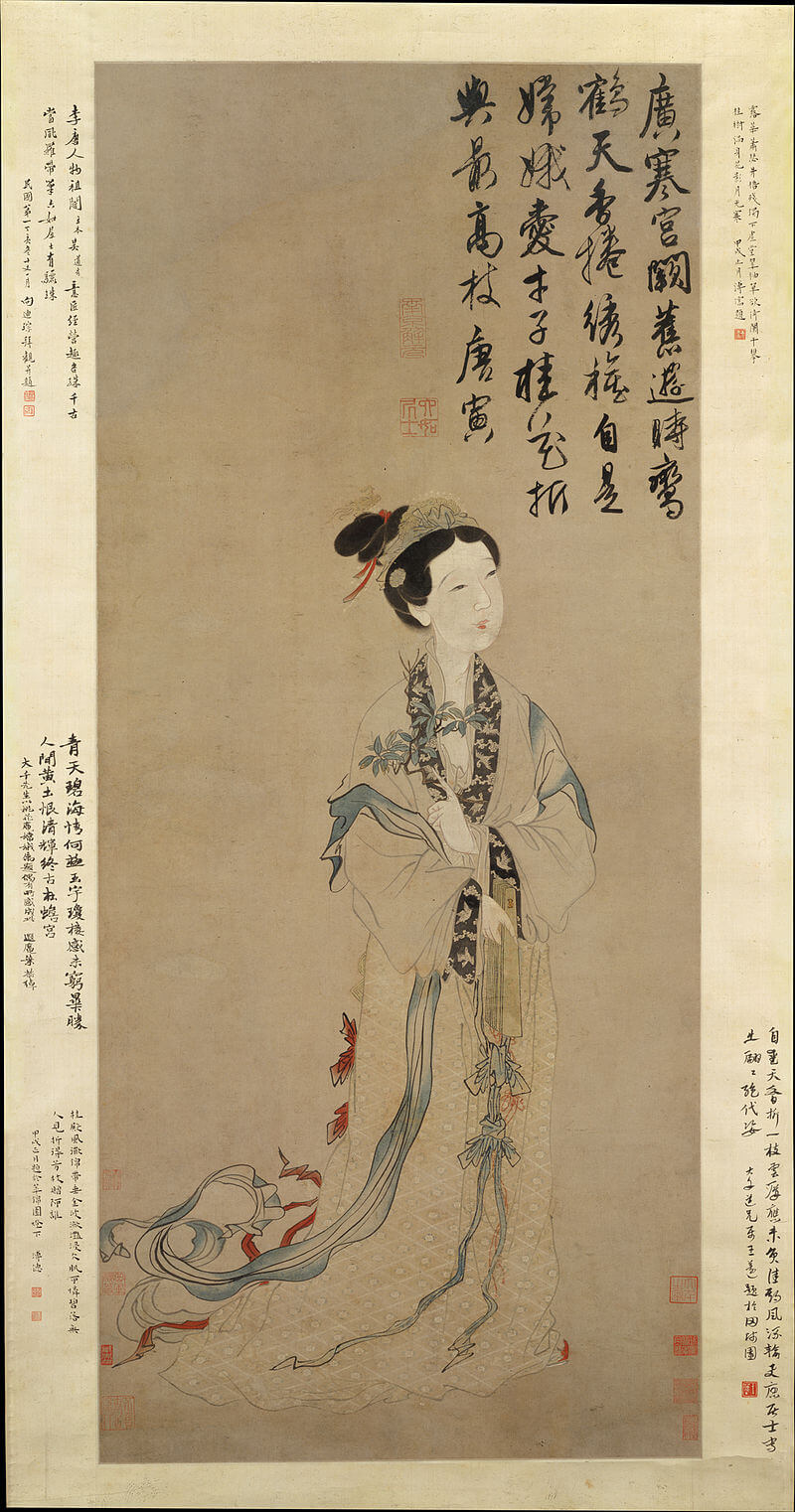
Chang’e is most famous in relation to her marriage with Hou Yi – the legendary Chinese archer. She is more than just his wife, however, and is the one who ends their relationship in a very unique manner (or several different manners, depending on the myth).
Just like the ends can vary, so do the beginnings. In the several versions of the Chang’e and Hou Yi legend, the couple are either mortals in love who go through a fascinating adventure or a pair of gods.
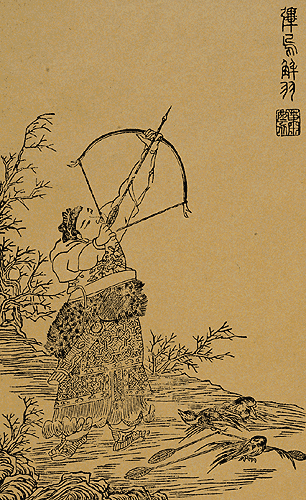
- Chang’e and Hou Yi as Gods
Hou Yi is sent down to Earth to help Emperor Lao get rid of a few monsters that pester his kingdom as well as with the problem of having too many suns in the sky. Since Earth is too far and Chang’e doesn’t want to be away from her love, she comes down with him.
In some myths, Chang’e used to be the servant of the Jade Emperor in the heavens, but she was sent to Earth as a mortal as punishment for breaking one of the Emperor’s porcelain pots.
- Chang’e and Hou Yi as Mortals
The versions of the myth that are most popular, however, are the ones where the couple are mortal in the beginning. The basic premise is similar. Emperor Lao conscripts Hou Yi to shoot out some of the suns in the sky before they burn out the land, and Chang’e comes along because she loves her husband. This can sound trivial at first but the unique part comes in the end.
The Elixir of Immortality
As a reward for Hou Yi’s heroics in saving the land from monsters and excess celestial bodies, Emperor Lao (and, in some myths, Xiwagmu, the Queen Mother of the West) give the archer the gift of immortality. The gift comes in the form of an elixir, but in some myths it’s a pill.
To make matters interesting, Hou Yi decides against taking the elixir or pill immediately. From here, the story diverges into several possible endings:
- Chang’e Saves the Elixir from a Thief
However, Peng Meng, one of Hou Yi’s apprentices, discovers that he has such a magical elixir and decides to steal it. Peng Meng breaks into the couple’s home when Hou Yi was away but Chang’e manages to get to the elixir first and drinks it so that Peng Meng doesn’t get it.
Unfortunately, this means that she can no longer stay on Earth and has to ascend to the heavens. So, she decides to make the moon her permanent residence so that she can be as close to Hou Yi as possible and watch over him.
Even this doesn’t go according to plans, as Hou Yi falls into depression and kills himself, leaving Chang’e alone on the moon (presumably wondering why she didn’t just leave the elixir to Peng Meng and live happily ever after with Hou Yi).
- Chang’e Steals the Elixir
Another variant of the myth is significantly less romantic but comes with a happy ending. In it, the relationship between Hou Yi and Chang’e is unhappy as the archer is overly oppressive and torments his wife in various ways.
Here, however, Chang’e manages to steal the elixir of immortality and drink it before Hou Yi has had the chance to.
The archer tries to shoot Chang’e as she ascends to the moon, in the same way he had shot nine of the ten suns out of the sky, but he misses. Free of her oppressor, Chang’e lives as a goddess on the moon to this day.
- Chang’e Takes the Elixir to Save China
In yet another version, Hou Yi is given a pill of immortality and he once again decides not to drink it right away. Here, he is also given lordship over the land as a reward for his heroics and he starts ruling together with his wife.
Hou Yi soon proves himself to be a tyrannical ruler who plagues his own people. Chang’e grows worried that if he takes the pill of immortality Hou Yi will become a constant scourge on the people of China, so she takes the pill herself to spare them that fight.
Once again, she ascends to the moon where she lives eternally, while Hou Yi eventually dies and stops pestering his subjects.
In either version of the story, Chang’e takes the deciding step to take the gift of immortality from Hou Yi – either to escape him, to save the people from him, or to stop a thief from stealing her husband’s treasure.
And whole the result is functionally always the same – the two end up separated – the meaning behind the ending is always different.
Symbols and Symbolism of Chang’e
Chang’e’s story is simple but powerful and has remained popular to this day. It’s most commonly retold as a romantic story of two heroic lovers who were doomed and not able to grow old together. Depending on which version of the myth you choose, however, the meaning can be quite different. One way or another, it’s always a story of unhappy or unsatisfied love.
Importance of Chang’e in Modern Culture
The Chang’e and Hou Yi myth is exceedingly popular in Chinese culture. The Mid-Autumn Festival is celebrated every year and there are a myriad songs, plays, and dance shows about the relationship of Chang’e and Hou Yi.
As far as pop culture is concerned, the most recent example is probably the Chinese/American animated film Over the Moon that was released on Netflix in 2020. In addition, the Chinese Lunar Exploration Program (CLEP) is called Chang’e Project.
There’s also a famous story about the Apollo 11 launch to the moon – as the spacecraft was landing on the moon, the flight controller told Ronald Evens the story of Chang’e and how she lives on the moon with a white rabbit. The astronaut famously replied that he would keep an eye out for the “bunny girl”.
FAQs About Chang’e
It’s said that before she became the goddess of the moon, Chang’e was beautiful, with pale skin, cherry blossom lips, and dark, flowing hair.
Apart from her famous husband, the archer Hou Yi, not much is known about the rest of Chang’e’s family.
Although often confused because of the similarity of their names and their domains (both are lunar goddesses), these two characters are different goddesses.
During the Mid-Autumn Festival, devotees set up an open altar to Chang’e, on which they place fresh pastries for the moon goddess to bless. It’s said that the goddess will bless devotees with beauty.
Wrapping Up
Chang’e’s story might be convoluted and may have several endings, making her myth a dubious one, but she still remains a popular much-loved deity of China. Regardless of what really happened to Chang’e, the fact remains that every version is intriguing.




